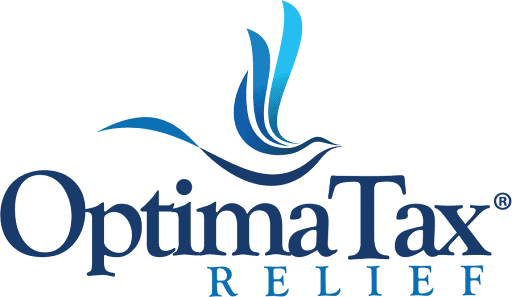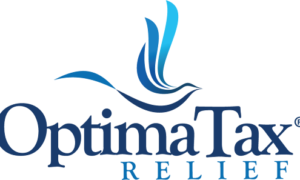In recent years, peer-to-peer payment apps and platforms have generated a lot of questions about how they tie in with taxes. If you use Zelle to send or receive payments, you may wonder: Does Zelle report to IRS? The short answer: no, Zelle itself does not issue Form 1099-K or directly report its user activity to the IRS. That said, it also begs the question: Do you have to report Zelle on taxes? The short answer: yes, just because Zelle doesn’t send you a tax form doesn’t mean you can ignore taxes altogether.
How Zelle Works – and Why That Affects Reporting
Zelle operates differently from many popular payment apps. Rather than acting as a wallet or independent intermediary that holds funds, Zelle is a bank-to-bank transfer service: funds go directly from your bank account to someone else’s bank account, via financial institutions. Because of this direct model, Zelle is not classified under IRS rules as a “third-party settlement organization” (TPSO) or similar entity that is required to issue Form 1099-K.
By comparison, many digital payment apps that allow you to hold a balance, receive payments, and then withdraw to a bank account are considered TPSOs under IRS rules. These platforms may have obligations to report to the IRS when thresholds are crossed.
What is IRS form 1099-K?
An IRS Form 1099-K is a tax form used to report payment transactions processed through third-party payment networks or payment card processors.
Does Zelle Report to the IRS?
Here’s the important part: Zelle does not issue a Form 1099-K and does not report your payments to the IRS simply because you used Zelle. The payment activity you do via Zelle is not automatically flagged or summarized for the IRS.
However, that doesn’t mean the IRS has no way of seeing payments. Your bank account records, where those Zelle transactions appear, remain part of your financial history and may be reviewed by the IRS in an audit scenario.
The Taxable Income Principle
So, do you have to pay taxes on Zelle transactions? Even though you won’t receive a Form 1099-K just for using Zelle, the underlying rule remains: if you receive payments for goods or services, whether via Zelle, cash, check, or any other means, it’s taxable income and must be reported.
On the flip side, not every Zelle payment is taxable. Transfers that are purely personal, such as reimbursements between friends, sharing a bill with a roommate, or gifts, typically do not count as taxable business income. The determining factor is the nature of the transaction (business vs. personal) and whether it involves selling goods or services.
Common Misconceptions & Reporting Thresholds
A lot of the misconception is centered around IRS Form 1099-K. Many people believe that because Zelle doesn’t send them a Form 1099-K, they’re somehow exempt from reporting. That is incorrect. Your obligation to report income does not hinge on receiving a tax form. Even without a 1099-K, you must include taxable income in your return.
What is a 1099-K and who receives it? A TPSO must file a form when payments for goods/services exceed $20,000 and more than 200 transactions in a year. That said, because Zelle is not a TPSO, these thresholds don’t trigger a 1099-K from Zelle itself.
Business Use via Zelle: What Small Biz & Side Hustlers Should Know
If you operate a business, side hustle, or provide services and receive payment via Zelle, treat those revenues just like any other business income. That means:
- Keep track of each payment you receive: who paid you, when, and for what.
- Use a separate bank account (or separate ledger) when possible for business transactions to help distinguish business vs. personal use.
- Collect and retain supporting documentation: invoices, receipts, contracts, correspondence.
- Report your gross income and subtract allowable business expenses. For sole proprietors this typically means filling out Schedule C (if operating as an individual) or other relevant business tax forms
- Remember: you may owe self-employment tax (Social Security/Medicare) on business income, not just income tax.
Even though Zelle doesn’t give you a pre-filled tax form, the IRS can access your bank records in an audit and notice discrepancies if income appears to have been underreported.
Personal Use vs. Business Use: Key Distinctions
It’s worth clarifying more precisely what doesn’t count as taxable business income via Zelle:
- Gifts from family/friends: Generally non-taxable for the recipient (though gift tax rules may apply to the giver if amounts are large).
- Reimbursements or sharing household costs: If you simply reimburse your roommate for utilities, rent, dinner, that tends not to be taxable income.
- Personal transfers between accounts that don’t represent payment for goods/services.
Conversely, you must report income when:
- You sell items (whether occasional or frequent) and receive payment via Zelle.
- You perform services (freelance, contract, gig work) and receive Zelle payments in return.
- You receive business income, even if you don’t receive a tax form from the payment network.
Risks of Not Reporting
Underreporting income, even when you didn’t receive a 1099-K, can trigger IRS penalties. These can include accuracy-related penalties (often around 20% of the underpayment) plus interest. Importantly, the IRS doesn’t rely solely on forms; they may review lifestyle, spending, bank deposit patterns, and other indicators.
In audit situations, Zelle transfers will typically show up as line items in your bank statements, so hiding them is not a safe strategy. Make sure you are organized, transparent, and can justify business vs personal use.
Practical Tax-Reporting Workflow for Zelle Users
If you’re using Zelle for business or professional payments, follow these steps to stay compliant:
- Separate accounts: Use a dedicated business bank account so business inflows and outflows are distinct.
- Record every transaction: Maintain a ledger or spreadsheet listing date, payer, amount, and purpose of each Zelle deposit.
- Save documentation: Invoices, contracts, digital receipts, bank export of transactions.
- Track business expenses: Everything from materials, supplies, advertising, to business travel, home office, etc.
- At year-end: Use your total gross income (including Zelle payments) and your deductions to calculate net income. Report this on your tax return (e.g., Schedule C + Form 1040 for sole proprietor).
- Estimated tax payments: If you expect to owe a significant amount (especially if self-employed), plan for quarterly estimated tax payments to avoid underpayment penalties.
- Consult a tax professional: If your Zelle payments are large or your business is growing, a CPA or enrolled agent can help ensure you’re maximizing deductions and staying compliant.
Bottom Line
Zelle offers a convenient, fast way to send and receive funds, particularly between bank accounts. But convenience doesn’t eliminate your tax responsibilities. While Zelle itself won’t send you a Form 1099-K or automatically report your transactions to the IRS, any income you receive via Zelle for goods or services is still taxable and must be reported.
Think of Zelle payments like cash: just because you didn’t get a formal tax document doesn’t mean the money is invisible. Whether you’re earning from a side hustle, freelance gigs, or a full business, treat those earnings with the same rigor as any other revenue stream; track carefully, separate from personal flow, report accurately. If in doubt, seek professional tax advice.



































